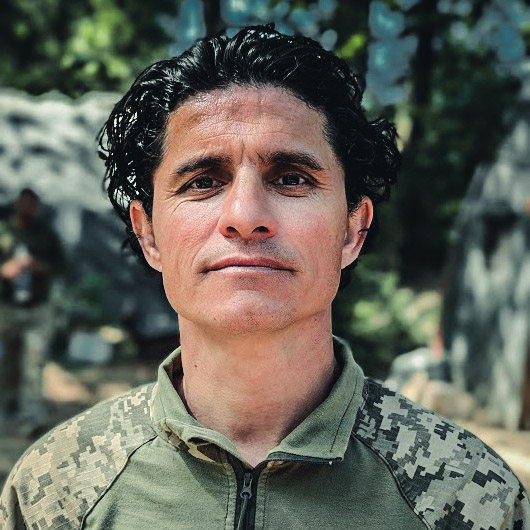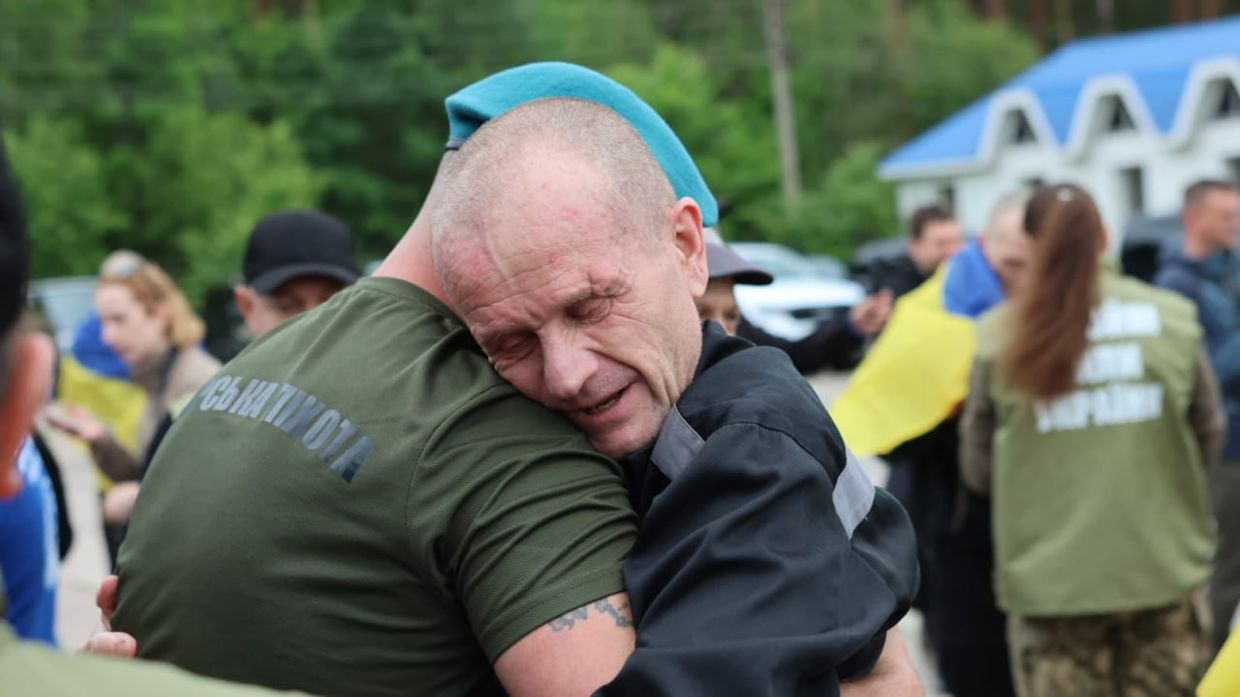A City in Kansas Is Suing Over a Planned ICE Detention Center

© David Robert Elliott for The New York Times


© David Robert Elliott for The New York Times


© Arash Khamooshi for The New York Times


© Go Nakamura/Reuters


© Roberto Schmidt/Agence France-Presse — Getty Images


© Charles Rex Arbogast/Associated Press


© Lena Mucha for The New York Times


© State Department


© Fred Ramos for The New York Times


© State Department


© Gabby Jones for The New York Times


© Federico Parra/Agence France-Presse — Getty Images


© Daniel Berehulak/The New York Times


© Godofredo A. Vásquez/Associated Press


He sings Ukrainian songs and stops Russian assault troops. A former paramedic from Colombia, known as Miguel, came to Ukraine intending to serve as a combat medic. However, due to the language barrier, he was assigned to the infantry.
He became a member of the 2nd International Legion of the Ukrainian Defense Forces, a military unit that brings together volunteers from over 50 countries, including the US, Canada, and the UK, who joined the fight to defend Ukraine from Russian aggression.
Despite this, he never abandoned his mission. Every day on the front line, he saves the lives of his comrades. He is learning Ukrainian by singing Chervona Kalyna, the country’s patriotic anthem.
“At first, it was tough on the front line,” Miguel says, “but over time I realized you can fight back even against artillery. You have to attack and retreat, attack and retreat. That’s how I survived.”
The hardest part, he says, is overcoming the fear in your first battle.
“That’s the problem: people go into their first fight and afterward, because of fear, decide they can’t do it. But you have to adapt,” Miguel explains.
Even without official medic status, Miguel has repeatedly provided first aid to the wounded.
“The first cases stayed with me the most, but every single one of them inspires me to keep fighting and helping people. In the Legion, we are all one family. We always support each other,” he concludes.
Earlier, the Ukrainian 47th Mechanized Brigade Magura formed a reconnaissance and strike group composed mainly of Colombian volunteers.
The company commander, known as Hamlet, personally organized the arrival of foreign volunteers, including Colombians and fighters from Peru, Brazil, Zimbabwe, Italy, and Mexico. Ukrainian state programs allow them to quickly undergo training and integrate into the Ukrainian Armed Forces.
Ukrainian fighters describe Colombian volunteers as “brave and humane,” who retrieve their wounded comrades and injured Ukrainians from the frontline, and are ready to carry out essential missions.


Editor's note: The story is being updated.
Ukraine has brought home another group of prisoners of war released from Russian captivity, President Volodymyr Zelensky said on June 20, following another prisoner exchange a day earlier.
"Most of the warriors returning today from Russian captivity had been held for over two years. And now, at last, they are home," Zelensky said on X, without revealing how many captives were exchanged.
Russia's Defense Ministry also said that a group of Russian soldiers had been released by the Ukrainian side, without specifying the number of personnel involved.
This week's exchanges follow four similar swaps carried out last week in accordance with Ukraine-Russia agreements reached at peace talks in Istanbul on June 2.
The latest swap was another in a series focusing on seriously ill and wounded prisoners, Ukraine's Coordination Headquarters for the Treatment of the Prisoners of War (POW) said.
"These are defenders of Mariupol, Donetsk, Luhansk, Zaporizhzhia, Kherson, Kharkiv, and Chernihiv regions. Warriors of the Armed Forces, the National Guard, and the Border Guard Service," Zelensky said.
The released POWs included privates and non-commissioned officers, some of whom were captured after the siege of Mariupol in 2022, according to the Coordination Headquarters. The oldest one is 60 years old, said Ombudsman Dmytro Lubinets.
While no political breakthrough was achieved at the Istanbul negotiations, both sides agreed to a phased exchange of prisoners and the repatriation of fallen soldiers' bodies. As part of that agreement, Russia pledged to return the bodies of up to 6,000 Ukrainian service members and citizens.
Moscow has handed over 6,057 bodies to Ukraine in several stages over the past few days, though Kyiv later said that these remains also included fallen Russian soldiers.
The June 2 agreements came after the largest known POW swap in late May, when 1,000 prisoners were exchanged on each side.
Ukraine repeatedly called for a prisoner exchange in an all-for-all format, but Russia continues to reject the offer.
 The Kyiv IndependentTim Zadorozhnyy
The Kyiv IndependentTim Zadorozhnyy